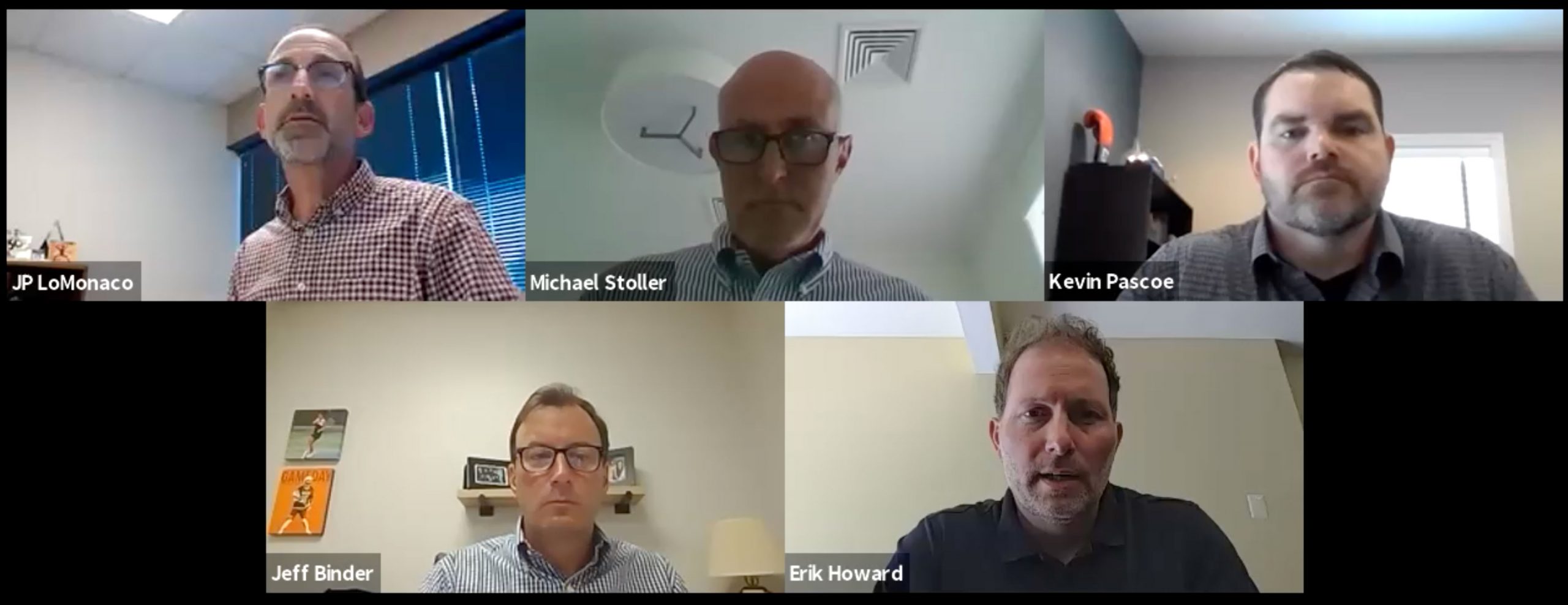The seniors housing industry has been through the wringer as a result of the pandemic, setting and then resetting its own record-low occupancy rates as expenses increased for infection control, staffing and construction materials.
However, many in the industry are now starting to see the light at the end of the tunnel. The skilled nursing sector has undergone two straight months of rising occupancy rates, and industry experts are seeing the effects of the COVID-19 vaccine taking hold on the industry.
“It’s not back to where it was, and it will be a little bit of time before it is because NOI isn’t stable right now,” said Kevin Pascoe of National Health Investors, a publicly traded REIT. “But we are starting to see some sort of return.”
Pascoe’s comments came during a webinar hosted by Seniors Housing Business titled “Seniors Housing Valuation Outlook — What’s Next Now that the Pandemic End is in Sight?” Panelists spanned various segments of seniors housing — owners, operators, brokers, capital providers and valuation firms — and included Pascoe, moderator JP LoMonaco of Valuation & Information Group, Michael Stoller of LCB Senior Living, Erik Howard of Capital Funding Group and Jeff Binder of Senior Living Investment Brokerage.
LoMonaco said that while the metrics such as occupancy haven’t yet returned, all signs point to a recovery on the way.
“This is a gap period,” he said. “Many operators are reporting higher traffic volumes, but few are reporting spikes in occupancy yet.”
On the acquisitions front, Binder noted that things “without a doubt have picked up,” saying that his brokerage firm has closed 30 transactions so far this year.
“Our goal is to get as many proposals out as we can right now,” said Binder. “Interest seems to be much higher than in 2020, which will lead us to a much healthier M&A market. We’re really excited about how this year has transpired.”
The pandemic has led to an increase in value-add opportunities for distressed properties, he adds. Pascoe agreed with that assessment, noting that as a buyer, NHI’s options have been pretty much restricted to distressed properties or well-performing assets at high prices and low capitalization rates.
“You either have something that’s in distress but has long-term sustainability, or something that’s good quality and good income but you’re buying at a cap rate that is at or below our cost of capital,” said Pascoe. “That makes it tough for us to participate. We’re still open for business and we have a regular deal flow we’re looking at, but it’s definitely a needle in a haystack right now that fits with our traditional model.”
From a lending perspective, Howard said Capital Funding Group closed $1.3 billion in bridge loans in all of 2020. That number is already at nearly $900 million through May of this year.
“We saw a number of different borrowers and operators continue to be active,” said Howard. “They had to be opportunistic, so we were fortunate to have our doors open and pick our spots with those operators where we saw some value-creation plays. It was clearly an interesting time, but as we go forward you’ll see well-capitalized owners and operators have success in the M&A market as lenders will gravitate toward them.”
From an owner-operator’s perspective, Stoller acknowledged that things were drastically different now than when the pandemic first struck over a year ago. “I don’t think anything is normal anymore,” he said. “From an operating standpoint, everything has changed.”
He noted that LCB didn’t take a “pause” but rather “some deep breaths” to consider which new developments to continue with as materials cost increases become “nothing less than terrifying.” However, he also sees that recovery is on the way in all facets of the industry.
“Overall we’ve been optimistic that we can win this battle with COVID and normalcy will come back in terms of revenues and expenses,” said Stoller. “All our partners have been active in acquiring and doing deals, while our banks all took the same momentary pause but have come back strong. We’re negotiating a term sheet now and we have another deal we just signed.
“We’re bullish, but we’re very selective on what we do. We’re a Northeast company. The Northeast got hit hard early in the pandemic, but has done remarkably well over the last few months.”
To view a replay of the webinar for free, click here.
— Jeff Shaw

